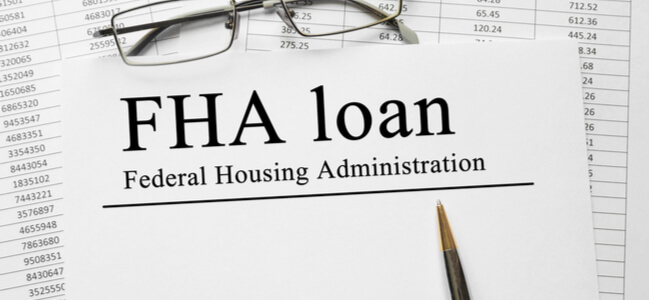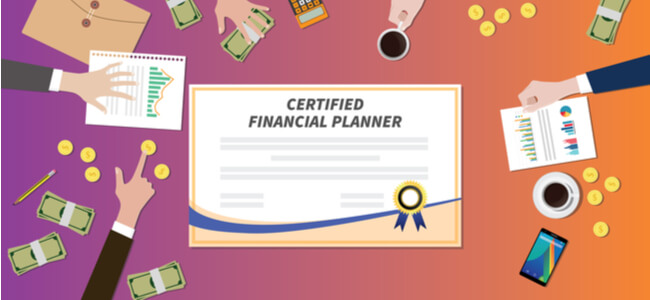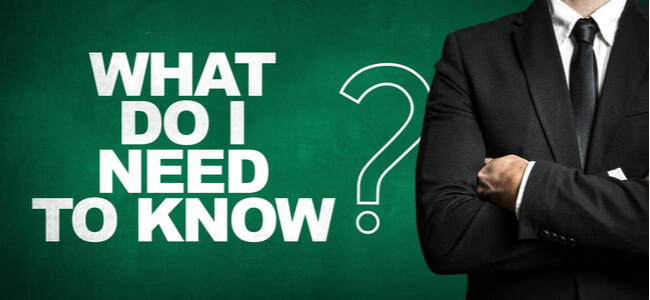What Is An FHA Loan & Who Is Eligible?

An FHA loan is a mortgage option for borrowers who don’t meet the credit score and down payment requirements for a conventional mortgage. Unlike conventional mortgages where lenders require a bigger financial commitment before approving your application, these alternatives are designed to lower the barriers to homeownership.
Keep reading to learn about the types of FHA loans and how to qualify.
What Is An FHA Loan?
An FHA loan is a mortgage insured by the Federal Housing Administration (FHA). The government organization was established during the Great Depression in response to the housing market crash. Its mission was to make homeownership more affordable and reduce the number of foreclosures.
Upon its establishment, a 20% down payment standard was created versus the 50% required at the time. Accordingly, these loans make it easier for first-time homebuyers to qualify for a mortgage.
Who Is Eligible For An FHA Loan?
Generally speaking, to qualify for this type of loan you need the following:
- A credit score of at least 500. The higher your score, the better the loan terms
- A debt-to-income (DTI) ratio of no more than 50% (up to 50% of your pre-tax monthly income can go toward debt payments. This includes mortgage or rent payments, student loans, credit card payments, car loans, personal loans, child or spousal support, and other payments that you must make every month)
If you’ve filed for bankruptcy, you might need to wait as long as two years before applying. Still, some lenders will consider your application after 12 months.
Why Choose An FHA Loan Over A Conventional Loan?
What is the advantage of an FHA loan?
- This loan type is guaranteed by the government whereas a conventional loan isn’t. Therefore, lenders are much more strict about borrower qualifications
- FHA loans are more open regarding the source of your down payment. The money can come from your employer, friends, or family, or even a charitable organization
- Conventional loans require a down payment to be from your savings/checking/investment or retirement accounts
There are loan limits that accompany the government-backed mortgage options. Yet, the limits aren’t consistent across the country. In 2020, loan limits on average numbered between $331,760 to $765,600. To uncover the FHA loan limits in your area, visit the HUD website.
If you have good credit and can manage a 20% down payment from your personal savings, a conventional loan might be a more affordable choice. However, if you’re challenged in these areas, FHA alternatives are likely the most affordable option.
What Are The Types of FHA Loans?
There are various types of FHA loans available, for example:
FHA 203(k): Basic home mortgage
- Purchase or renovate
- Adjustable or fixed interest rates
- Multiple types of housing units are eligible
FHA Section 245(a) loan
- Graduated payment mortgage
- Designed for borrowers who expect their income to grow
- Initial payments are smaller and then gradually increase
Energy Efficiency Mortgage (EEM)
- Can be obtained for new construction or to upgrade your existing home
- Finances the costs of upgrading to green technologies
Home Equity Conversion Mortgage (HECM)
- A type of reverse mortgage
- Homeowners 62 and older who own their property or have significant equity can withdraw from their home equity
Who Issues FHA Loans And How Do I Apply?
Lenders approved to underwrite these loans include conventional banks, credit unions, independent mortgage lenders, and alternative lenders. Yet, like all types of financing, you should always shop around. Rates, fees, and lending requirements can vary by lender.
In general, you’ll need the following documents to apply:
- Verifiable employment history for the last two years
- Copy of your tax returns for the past two years
- Pay stubs
- List of your liabilities and the amount you pay to each creditor each month
- Names and address of your employers over the past two years
- If self-employed, P&L statements for the last two years
In terms of down payment requirements, the following outlines the basics:
- The amount of down payment required depends on your credit score
- For a credit score of at least 580, you can put as little down as 3.5%
- If your credit score is between 500 and 579, you’ll need to put down 10.0% toward the purchase price
Mortgage Insurance
- Mortgage insurance is required for all FHA loans. At the time of signing the mortgage loan, you’ll make an advance mortgage insurance payment of 1.75% of the loan amount. This can be rolled into the amount you finance
- The annual insurance premium in 2020 is between 0.45% to 1.05%, depending on whether your loan was for 15 years or 30 years. You pay this premium monthly
- In most cases, mortgage insurance can’t be canceled
Property approval
- The property you intend to purchase must be approved by the Federal Housing Administration, including an appraisal
The Bottom Line
For mortgage applicants who don’t qualify for conventional financing, an FHA loan can help you become a homeowner that much sooner. There are many positives to using these government-backed loans to finance your home, chief among them being that you don’t need to make a big down payment.
Still, some aspects of the loan guaranteed by the Federal Housing Administration are costly, so be sure to evaluate all your options before deciding on the right mortgage.



